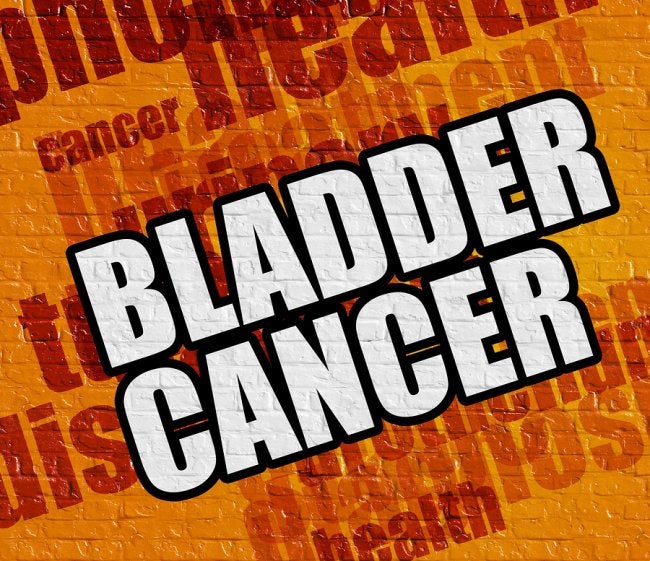-
Diagnosing Bladder Cancer
In most cases, bladder cancer begins in the lining of the bladder. As it progresses, it can penetrate deeper and potentially spread to other parts of the body. As with other types of cancer, it’s preferable if a urologist diagnoses bladder cancer when it’s in its early stages. When you watch this featured video, you’ll hear from Dr. David Morris—a board-certified urologist at Urology Associates, P.C.
Dr. Morris explains that many bladder cancer patients come to Urology Associates, P.C. after noticing blood in the urine. To diagnose the problem, you will likely have a cystoscopy, which is an invasive exam that may include a biopsy.
At Urology Associates, P.C., you’ll receive exceptional, compassionate bladder cancer care in Tennessee. You can request a referral to a urologist by calling (888) 329-7700.
-
Reducing Your Risk of Kidney Stones

Kidney stones are comprised of hardened deposits of minerals and acid salts. Although the symptoms of kidney stones can vary in intensity, many women have said the pain is worse than childbirth. Not all kidney stones require surgical intervention, but it’s a good idea to consult a urology specialist for expert treatment. If you’ve been diagnosed with kidney stones once, you should know that you’re at risk of getting them again. The following tips can help you prevent recurrent stones.
Increase your water intake.
Drinking plenty of water is essential for your health in general and kidney stone prevention in particular. During hot weather and while exercising, increase your water intake even more. As a general rule of thumb, you’re drinking enough water if your urine is very lightly colored or clear.
Increase your consumption of plant-based proteins.
It’s thought that eating lots of animal-based proteins may increase the risk of developing kidney stones. Your urologist may ask that you limit beef, chicken, and pork. Organ meat is thought to be especially impactful regarding kidney stone development. Consider limiting your intake of eggs, poultry, seafood, and dairy products.
Avoid calcium supplements.
Although calcium can be found in kidney stones, the consumption of food sources of calcium doesn’t appear to influence the risk. However, your urologist may suggest that you avoid calcium supplements.
Reduce your sodium intake.
Managing your sodium intake is particularly important if your kidney stones were calcium oxalate or calcium phosphate stones. There are lots of sneaky sources of sodium in the average American diet. High amounts of sodium are found in deli meats and cheeses, bread, pizza, soup, canned foods, and even frozen vegetables that include sauces. An effective way to reduce your sodium intake is to avoid processed foods and takeout, and to cook with fresh ingredients at home instead.
If you do need kidney stone treatment within Tennessee, you can count on Urology Associates, P.C. Our urologists offer cutting-edge treatments and sound medical guidance you can trust. Call our office at (888) 329-7700 to request a prompt appointment.
-
A Patient’s Guide to Epididymitis

The epididymis is a small, coiled tube located at the rear of the testicle. It’s responsible for storing and transporting sperm. When this tube becomes inflamed, the condition is called epididymitis. Epididymitis can be painful. If you suspect you might have this condition, it’s a good idea to see a urologist promptly.
Signs and Symptoms
Acute epididymitis often causes one-sided testicular pain and tenderness, swelling and reddening of the testicle, and painful urination. Men may also experience the following:
- Urgent or frequent urination
- Penile discharge
- Painful ejaculation
- Pain of the pelvic region
- Bloody semen
- Testicular lump
- Fever
Chronic epididymitis occurs when the symptoms last longer than six weeks.
Causes and Risk Factors
In boys and men who are sexually active, the most common cause of epididymitis is sexually transmitted diseases (STDs) like gonorrhea and chlamydia. It’s also possible to develop epididymitis because of a non-STD infection, such as urinary tract infections. In some men, urine trickles backward into the epididymis. This can also cause inflammation. Other possible causes and risk factors include the following:
- Groin injury
- Tuberculosis
- Certain medications
- Unprotected sex
- Prostate enlargement
- Uncircumcised penis
Diagnostic Tests
To diagnose epididymitis, a urologist will perform a physical exam, review the patient’s medical history, and evaluate his symptoms. A rectal exam may be needed to rule out the possibility of prostate enlargement. Then, the urologist may ask to run some tests, such as an STD screening, urine test, and blood test. Sometimes, an ultrasound can be helpful to rule out the possibility of testicular torsion.
Treatment Options
If the urologist determines that the problem is caused by a bacterial infection, he or she can prescribe antibiotics. For STDs, it’s necessary to treat the patient’s sexual partner. While the infection is clearing up, patients can relieve their discomfort by wearing an athletic support and applying cold packs. A follow-up visit will check whether the infection has resolved. In some cases, an abscess may have formed. This requires surgical intervention.
If you’re experiencing sexual health problems, you can turn to the trusted urology team in Tennessee. The award-winning, board-certified urologists at Urology Associates, P.C. are dedicated to providing compassionate, patient-centered care. Call (888) 329-7700 to request an appointment or visit our website to read more about male health issues, including sexual dysfunction.
-
A Look at Life After Bladder Cancer

Surviving any type of cancer is cause for celebration. But if you’ve survived bladder cancer , you should know that you’re at a high risk for recurrent bladder cancer. Your cancer care team at Urology Associates, P.C., will develop a survivorship care plan that is designed to help you live life well after cancer.
Keep all appointments for follow-up exams.
Your survivorship care plan should include a schedule of follow-up exams you’ll need. Because of the high risk of recurrent cancer, it’s essential not to skip these appointments. At each follow-up visit with your urologist, you’ll likely have a physical exam. You may be asked to have some medical tests, which might include blood tests, imaging exams, and urine tests. Assuming that you still have your bladder, you can expect periodic cystoscopy exams. As time passes and you remain cancer-free, your doctor may begin scheduling follow-up visits with reduced frequency.
Report unusual symptoms you experience to your doctor.
If you experience any signs or symptoms that might indicate a recurrence of cancer or the development of new cancer, contact your doctor right away—don’t wait for your next follow-up appointment. Your urologist will let you know which signs and symptoms to watch out for, such as changes in urination and bloody urine.
Reduce your exposure to toxins.
It’s to be expected that, after surviving bladder cancer, you’d be motivated to make some lifestyle changes to improve your health. There is no foolproof way to prevent recurrent cancer or new cancers, but there are impactful ways you can safeguard your health. If you don’t smoke, don’t start and also try to avoid secondhand smoke. If you do smoke, talk to your doctor about methods of quitting. Other environmental toxins may contribute to an increased risk of cancer. If your job requires exposure to any chemicals, you can ask your doctor if this might place you at an increased risk.
For compassionate bladder cancer treatment in Tennessee, you can put your trust in the caring team at Urology Associates, P.C. Our urology specialists are committed to helping our patients live life well , during and after cancer treatment. Call us today at (888) 329-7700.
Recent Posts
categories
- Uncategorized
- Bladder Cancer
- Women's Sexual Health
- MonaLisa Touch
- Urology
- Urologist
- Erectile Dysfunction
- Kidney Cancer
- Incontinence
- Prostate
- MonaLisa Touch Laser Treatment
- Kidney Stones
- Urinary Tract Infections
- Event
- Sexual Dysfunction
- Testicular Cancer
- Prostate Cancer
- Urology Surgery Center
- urinary incontinence
- vaginismus
- noncoital pain disorder
- Hypoactive Sexual Desire Disorder
- Infographic
- provenge
- Xofigo
- robotic surgery
- hormone replacement
- diabetes
- renal cell carcinoma
- pelvic pain
- hematuria
- sexual health
- chronic testicular pain
- premature ejaculation
- Men's Health Clinic
- Dr. Melvin Seard
- Interstitial Cystitis
- vasectomy
- overactive bladder
- vaginal atrophy
- nocturia
- bladder infections
- urethral strictures
- Acute Epididymitis
- low sex drive
- circumcision
- pelvic floor dysfunction
- Peyronie's Disease
- prostatitis
- female sexual dysfunction
- varicocele
- difficult urination
- low libido
- PSA levels
- male fertility
- penile prosthesis
- prostatic intraepithelial neoplasia
- male infertility
- estrogen levels
- nurse navigator
- stress urinary incontinence
- vaginal yeast infection
- elevated psa
- painful sex
- adult circumcision
- epididymitis
- OAB
- kidney infection
- penile cancer
- pelvic organ prolapse
- Vasectomy Reversal
- bone health
- cystectomies
- clinical trials
- bloody urine
- Advanced Therapeutic Center
- WISH MedSpa
- neurogenic bladder
- WISH Team
- prostate biopsies
- BPH
- fecal incontinence
- lithotripsy
- osteoporosis
- kidney cysts
